30 schools for climate change national debate championship
Green Schools Initiative implementers say they have observed a marked improvement in the level and quality of debate as well as interest from students.
Hannah Gladys Asianzu of Seroma Christian High School debates during the Central region preliminary stage of the 2024 Green Schools Climate Change Regional Debate Qualifiers at Kololo Senior Secondary School in Kampala on June 26, 2024. Seroma finished second and qualified for the August national championship. (Credit: Joseph Kizza)
_____________________ 2024 THEME: INNOVATIONS THAT WORK
_____________________
Now that the regional qualifiers for the 2024 Green Schools Climate Change National Debate Championship are done, the 30 schools that have qualified will shift their attention to the big one, which will take place in Kampala during the August school holiday.
After more than a week of debates around the country, Kampala Metropolitan wrapped up the regional qualification phase of this competition on Thursday, with last year's silver medallist Mengo Senior School emerging as the regional champion.
Mengo qualified for the national championship alongside 'regionmates' Nabisunsa Girls School and Kitante Hill School.
▪️ 'Partnerships are key in fighting climate change'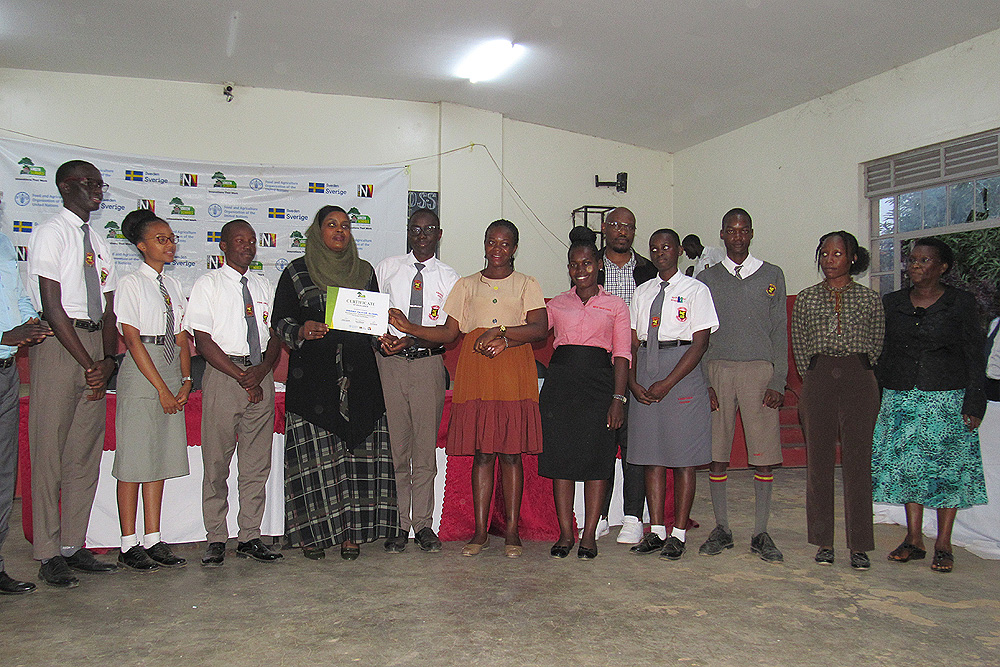
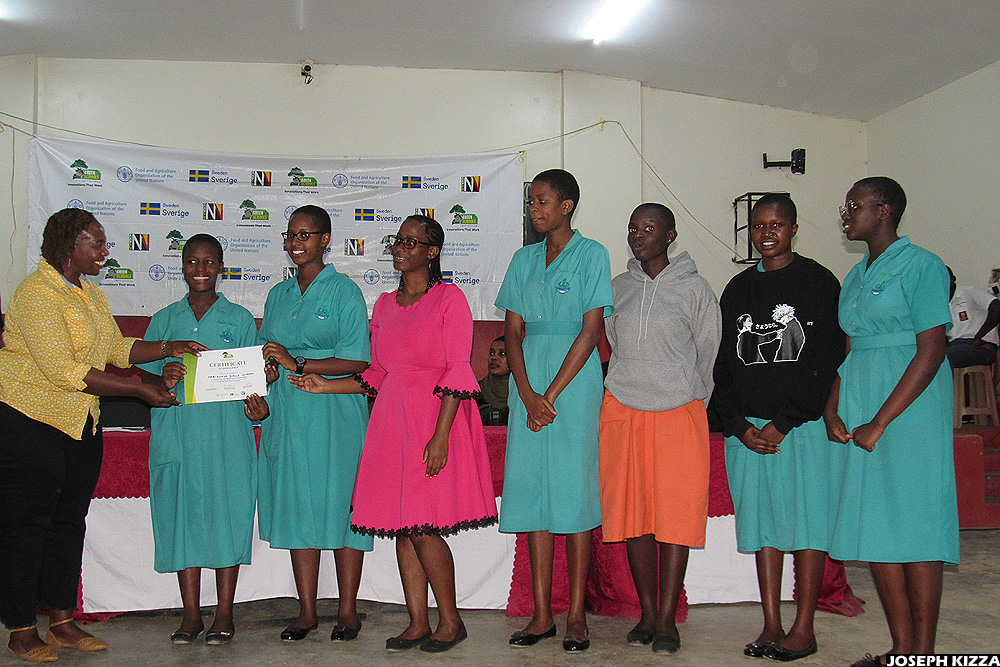
Coming into the final leg of the regional qualifiers hosted at Kololo Senior Secondary School in Kampala, 27 other schools had already sealed their places in the upcoming national competition.
A new national champion will be crowned in August.
Sacred Heart Secondary School Mushanga, who won the inaugural championship last year, did not take part this time around.
▪️ Sacred Heart SS win inaugural Green Schools national debate

For now, the qualified teams will get down to polishing up their tact in the buildup to the August championship.
And while at it, the experience, guidance and lessons they have drawn from the regional debates will come in handy.
Debate is one of the tracks of the Green Schools Initiative, which is in its second year of implementation by Vision Group in partnership with the Food and Agriculture Organization of the United Nations (FAO) and with funding from the Embassy of Sweden in Uganda.
The initiative was launched to sensitize the public on climate change mitigation and adaptation, with schools used as the point of entry.
▪️ Busoga, Western debating schools qualify for nationals
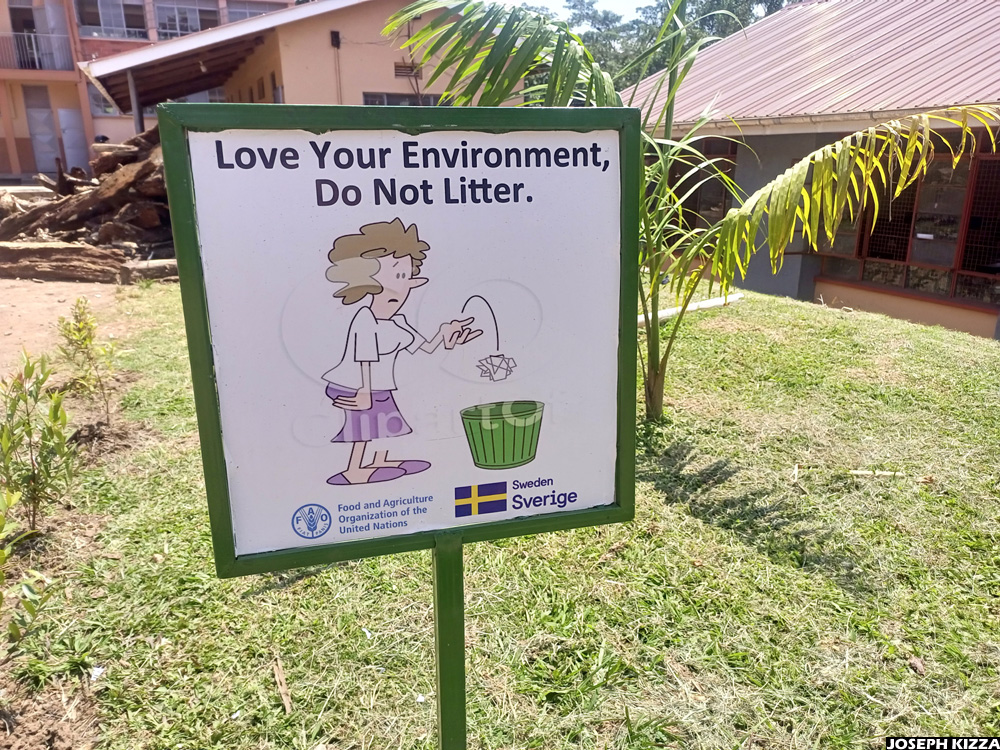
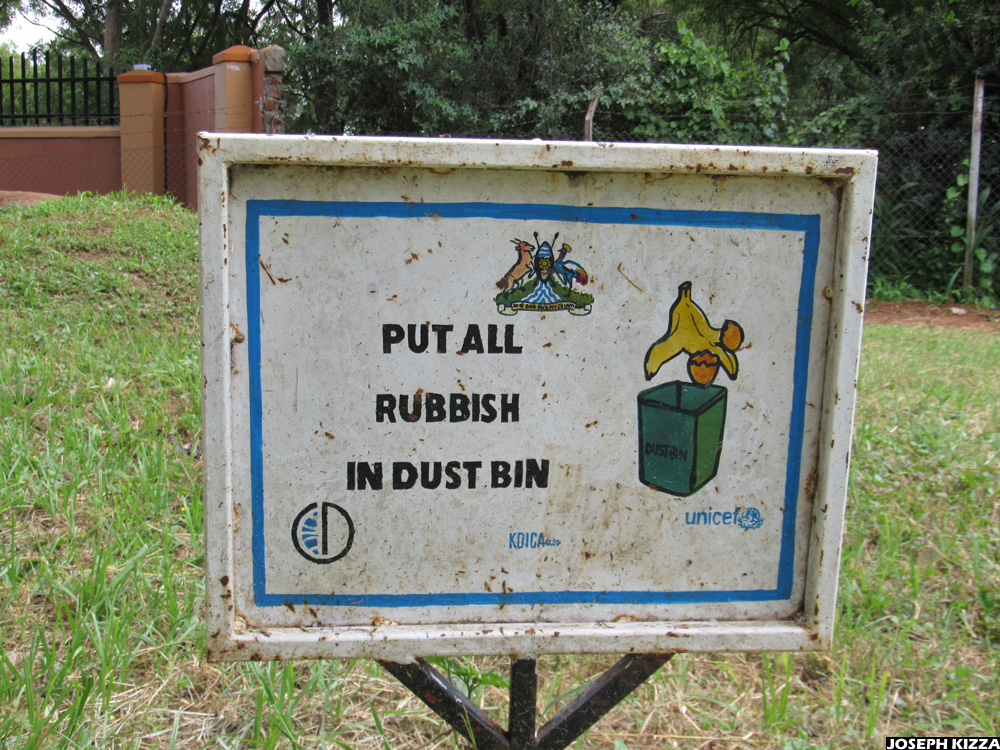

The project's second track focuses on innovative solutions aimed at mitigating or adapting to climate change.
Having kicked off in Karamoja and West Nile regions nearly two weeks ago, the regional debate qualifiers featured some first-time participants while other schools were returning for a second time.
In Karamoja, Lolachat Seed Secondary School emerged as regional champion, with Abim Secondary School and Napak Secondary School also making the cut for the national championship.
Arua Public Secondary School was the champion of West Nile and qualified along with Mvara Secondary School and Bishop Angelo Talantino Ediofe.
▪️ Debates 'inspire furture generations to conserve environment'
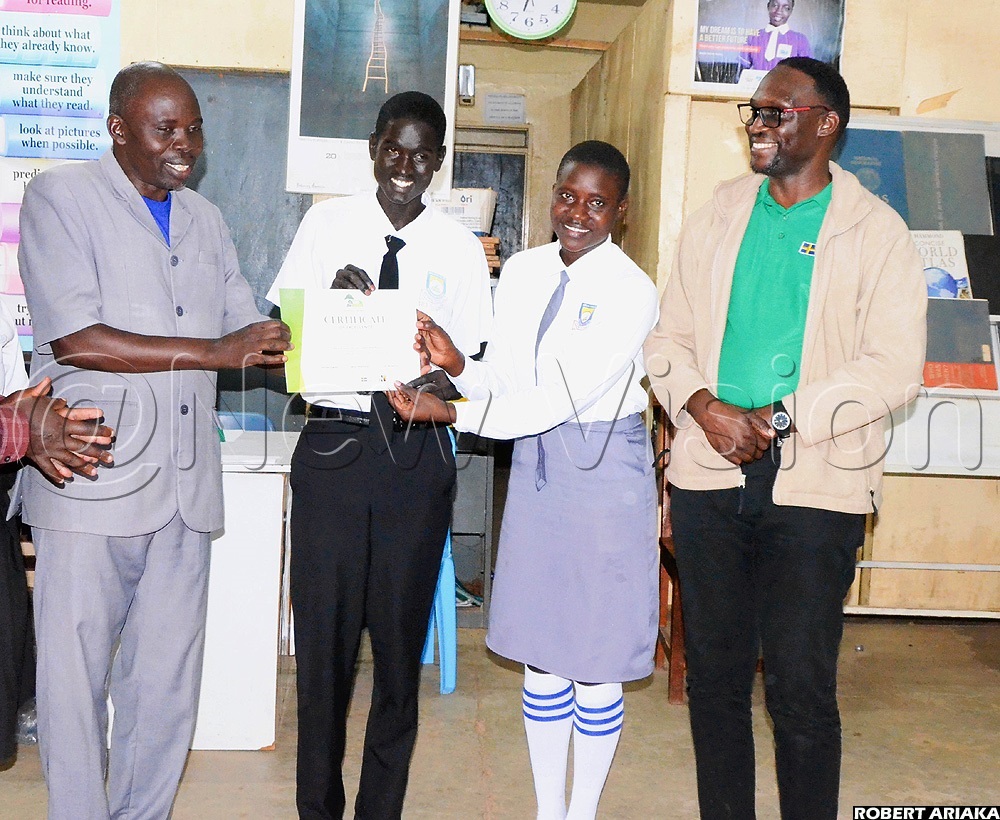
In Northern region, Comboni College reigned supreme over its challengers in a competition that saw Lango College and Y.Y Okot Memorial Secondary School also advance.
Soroti Secondary School became the Teso region champion and progressed to the nationals together with Teso College Aloet and St Elizabeth Girls Secondary School.
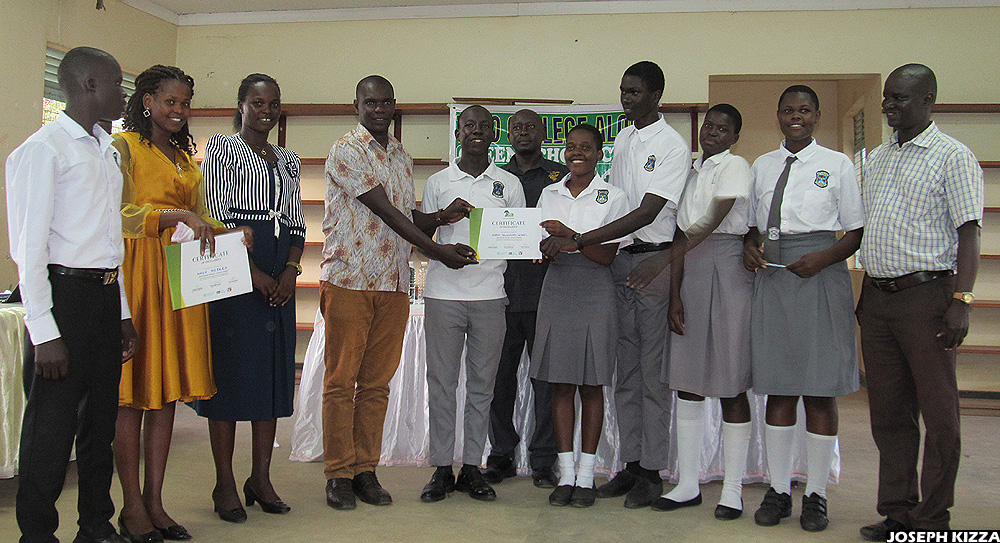
In Bugisu/Bukedi, Nabumali High School emerged as the champion, with Tororo Girls' School and Sebei College Tegeres finishing second and third, respectively.
Newcomers Holy Cross Lake View Secondary School went all the way and became champion of Busoga region as Iganga Secondary School and Busoga College Mwiri also qualified.
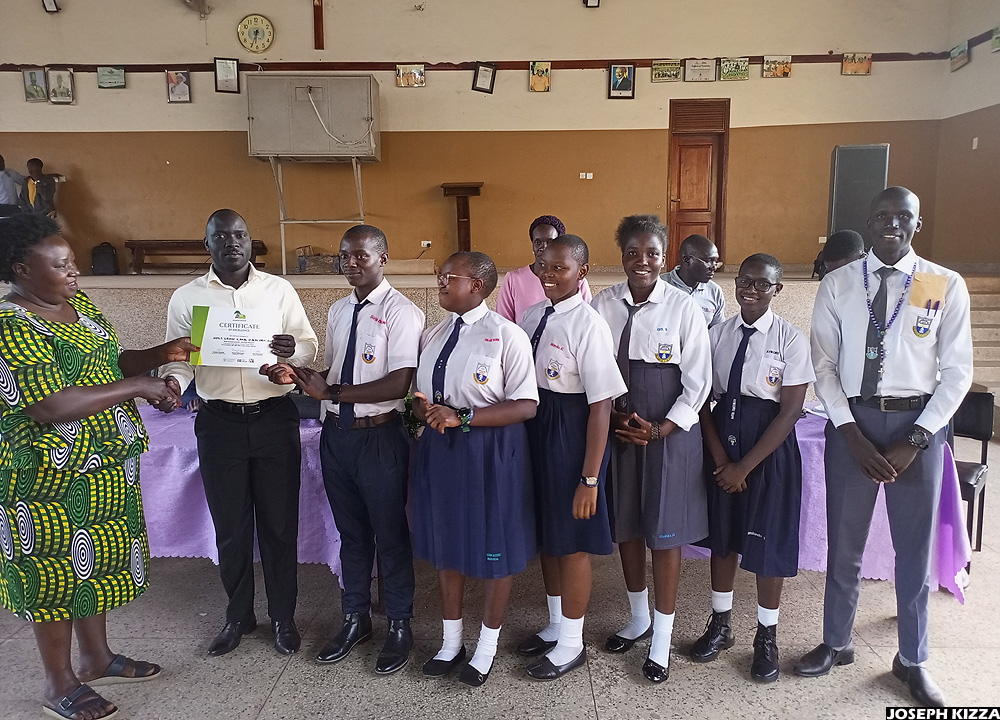
Ntare School defended its Western region title as Maryhill High School and Kigezi High School made it through as well.
The Midwestern competition saw Nyakasura School become champion and qualify alongside St Leo's College and Kabalega Secondary School.
In Central region, Kako Senior Secondary School battled all the way to the regional title and was joined in the national championship by Seroma Christian High School and Seeta High School.
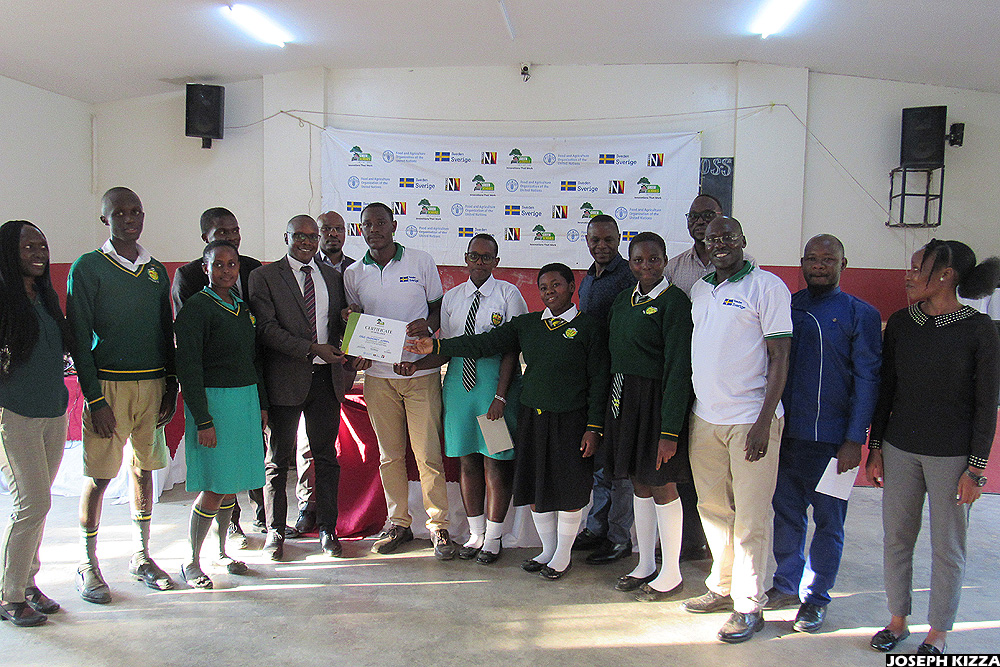
Kampala Metropolitan produced the final three advancing teams in the form of Mengo Senior School, Nabisunsa Girls Secondary School and Kitante Hill School.
Now that the regional debates are done, attention will turn to the national championship.
'Very competitive'
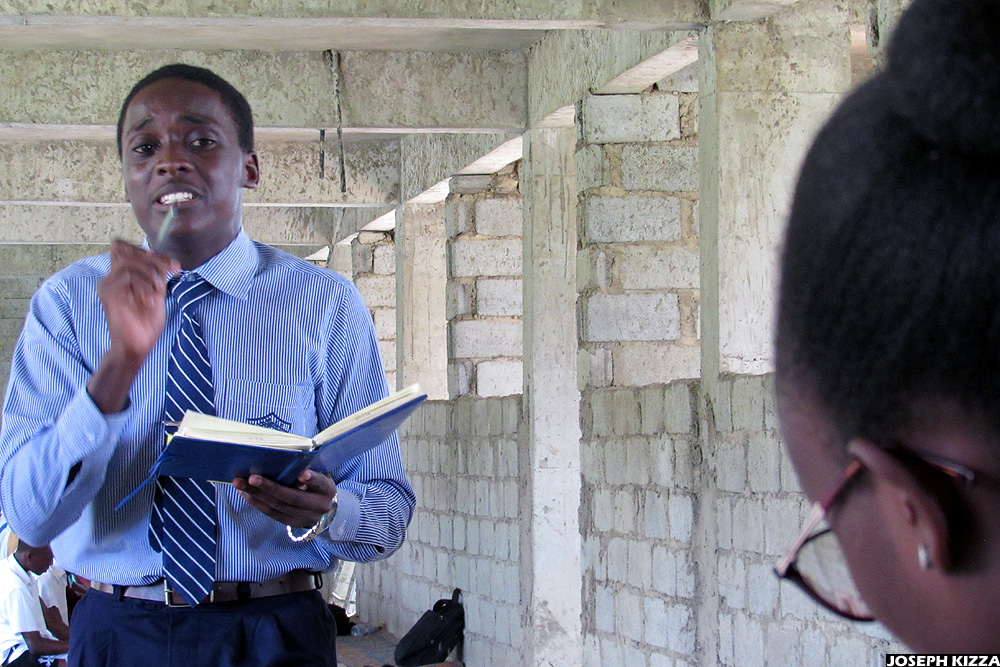
"It has been very competitive," said Sidney Miria, the Green Schools Initiative project co-ordinator, of the level of debating competition this year.
"Compared to last year, we have seen improvement in the level and quality of debate as well as interest from the learners.
"Climate change is the most urgent issue that we have as a country and as the world. Every one of us has got a role to play," added Miria, who also oversees special projects at New Vision.
WATCH 'The level of competition is up'

'Debate inspires students'
Throughout the regional phase, officials, including government representatives, hailed the Green Schools Initiative for being on the right track.
"School debates are essential for raising awareness about environmental and climate change issues," said Tony Achidria (pictured below), the senior environment awareness officer at the National Environment Management Authority (NEMA) during the penultimate leg of the competition on Wednesday at Kololo SSS.
▪️ 'Debates in schools should be a continuous process'
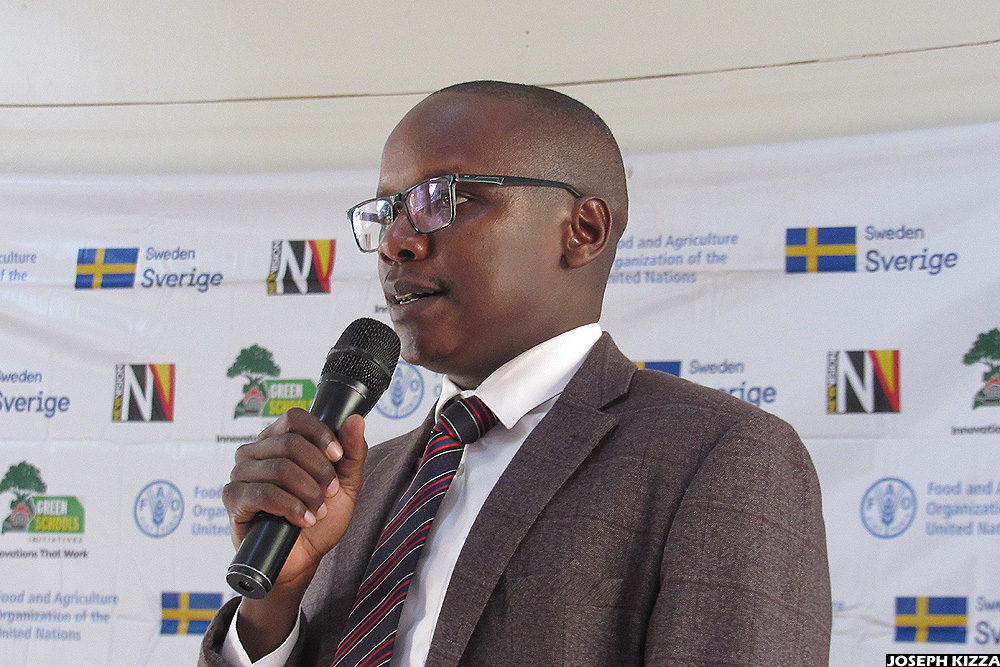
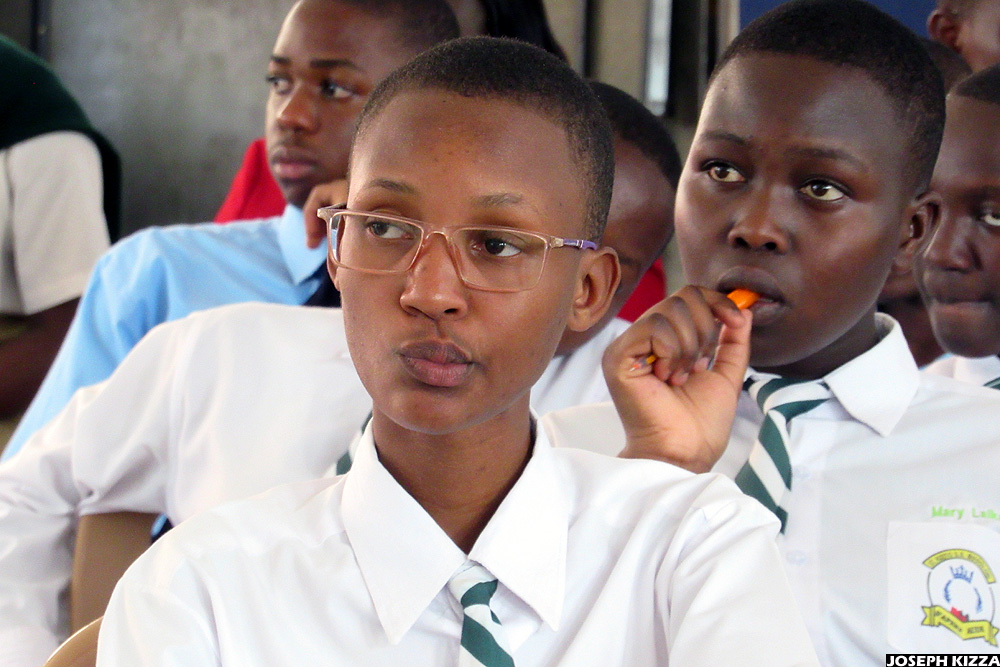
"By discussing different viewpoints and solutions, debates help young people understand the urgency of environmental challenges," said Achidria.
"This not only increases their knowledge, but also inspires them to support sustainable practices and policies, and this is crucial for addressing climate change.
"By teaching environmental consciousness at a young age, we empower the next generation to lead and make meaningful changes in the fight against climate change."
Dr Emmanuel Zziwa (pictured below), the team leader of FAO's climate change programme in Uganda, said initiatives such as the Green Schools project build the momentum of young people who are knowlegeable about climate change.
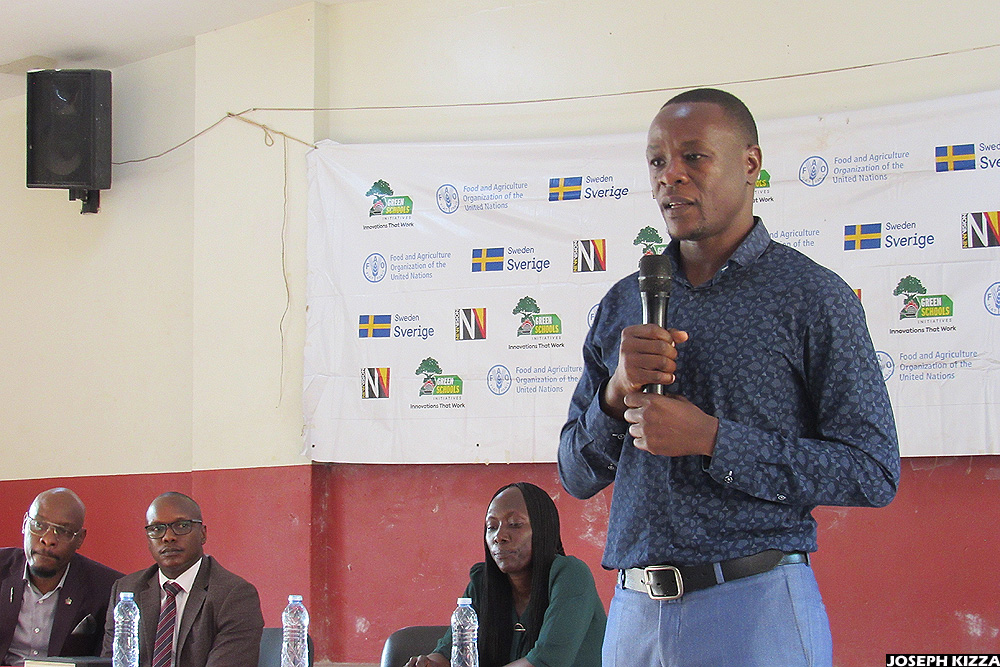
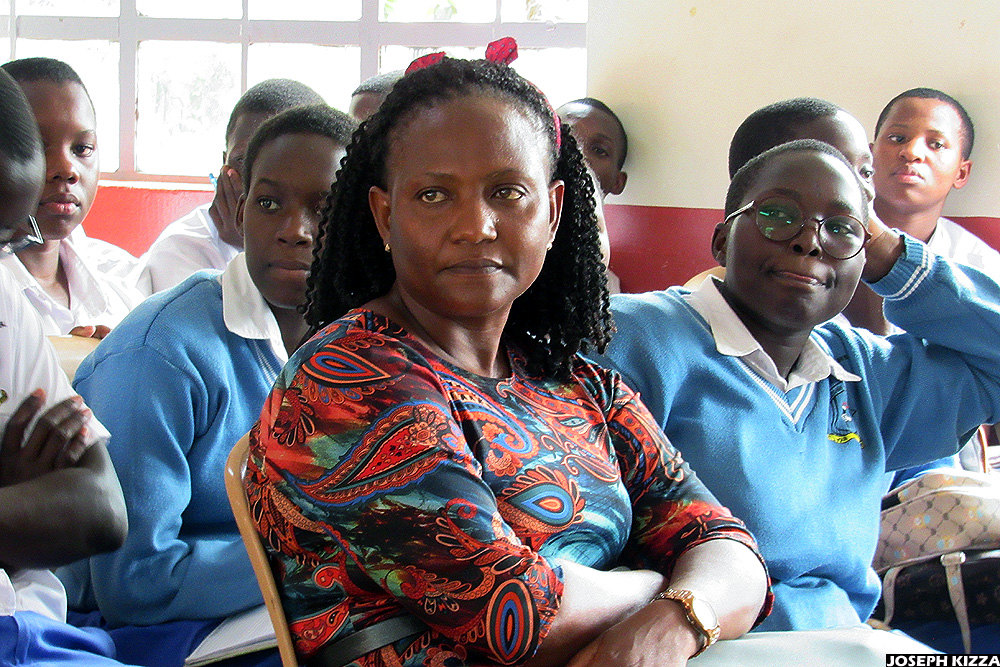
Speaking on the final day of the regional competition at Kololo SSS on Thursday, Zziwa pointed to the need for more efforts into adapting and building resilience against climate change.
He said the older generation has made the world very "unbearable" for a younger generation that he rallied to "demand your rights" because "this world belongs to you".
"We cannot have a better life without a better environment."
Green actions
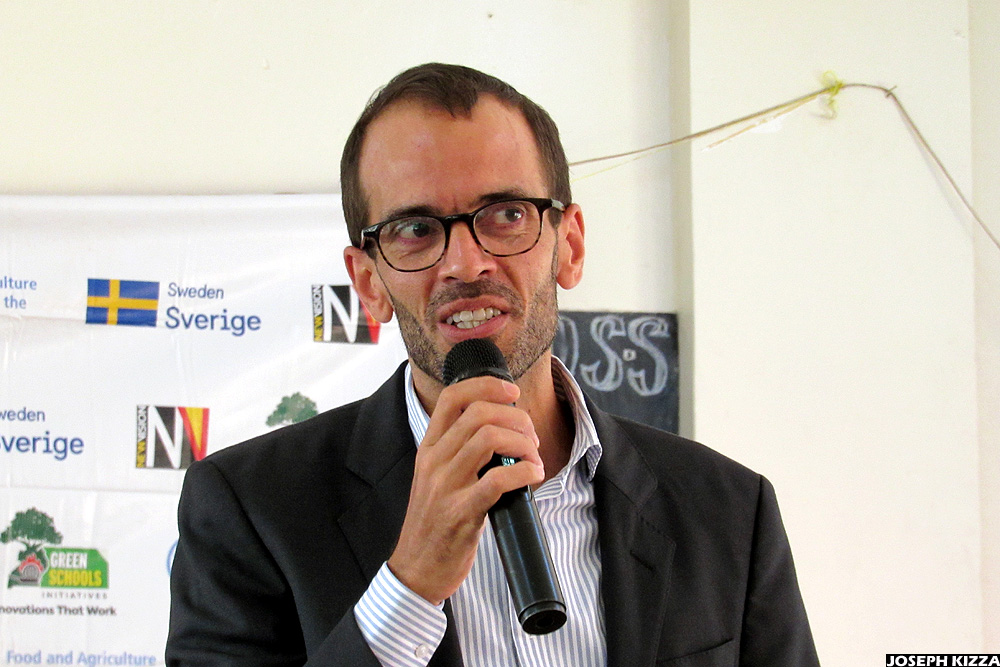
Adam Kahsai-Rudebeck (pictured above), the Deputy Head of Mission and Head of Co-operation at the Embassy of Sweden in Uganda, said he was impressed by the young debaters.
"During the previous year, this Green Schools Initiative created a lot of interest even beyond learners, teachers, schools and parents. And it has encouraged many other partners to start similar actions promoted by this initiative," he said on Thursday.
"And this aligns with the goal of this initiative, which is to uplift the issues of sustainable environmental management and climate change into public discourse such that green actions can be generated and implemented individually and collectively."
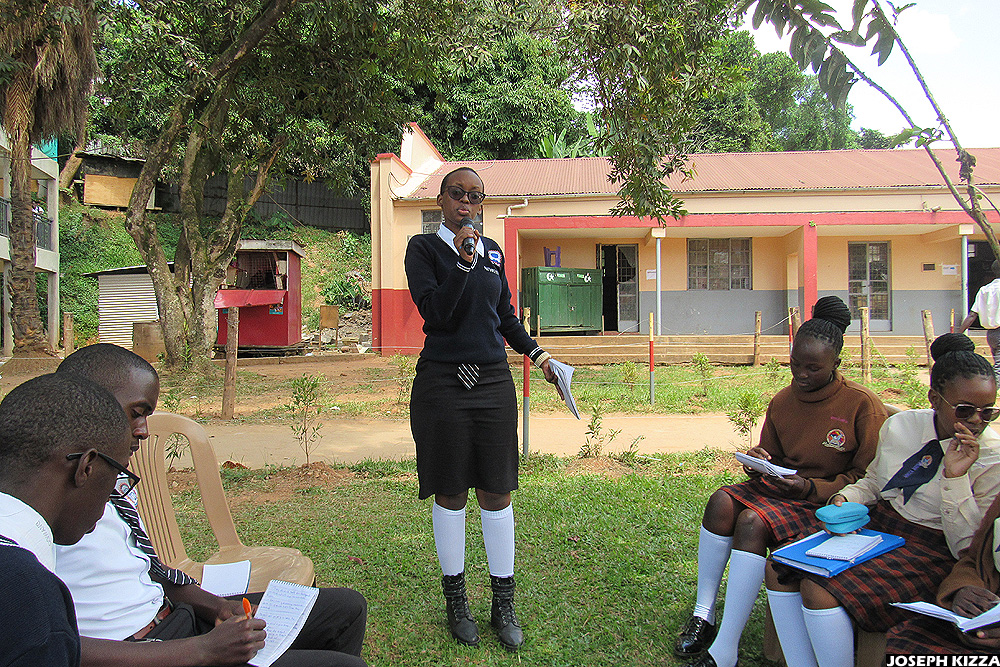
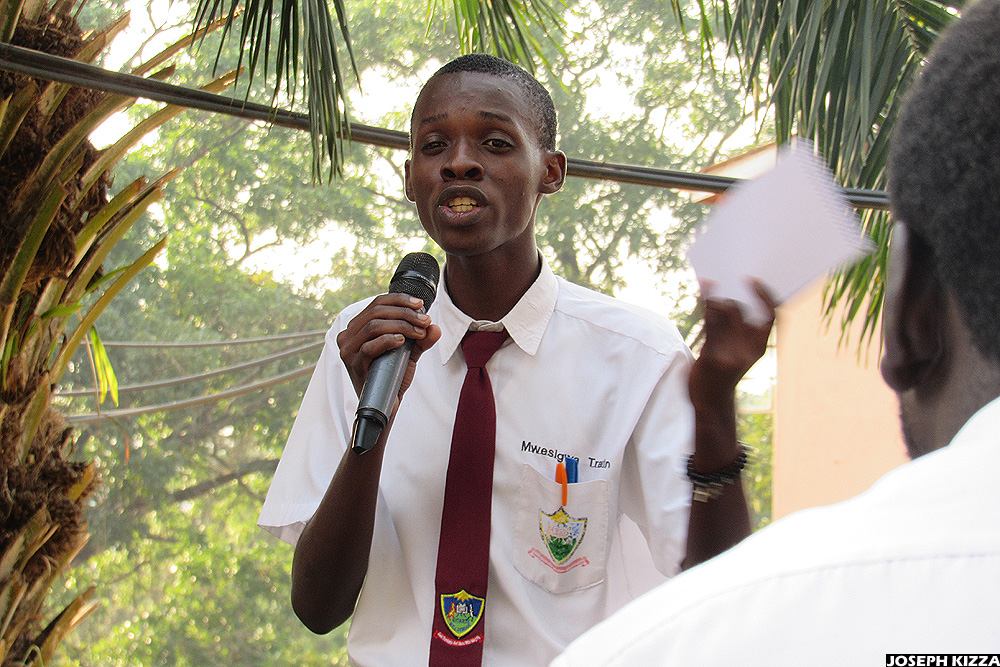
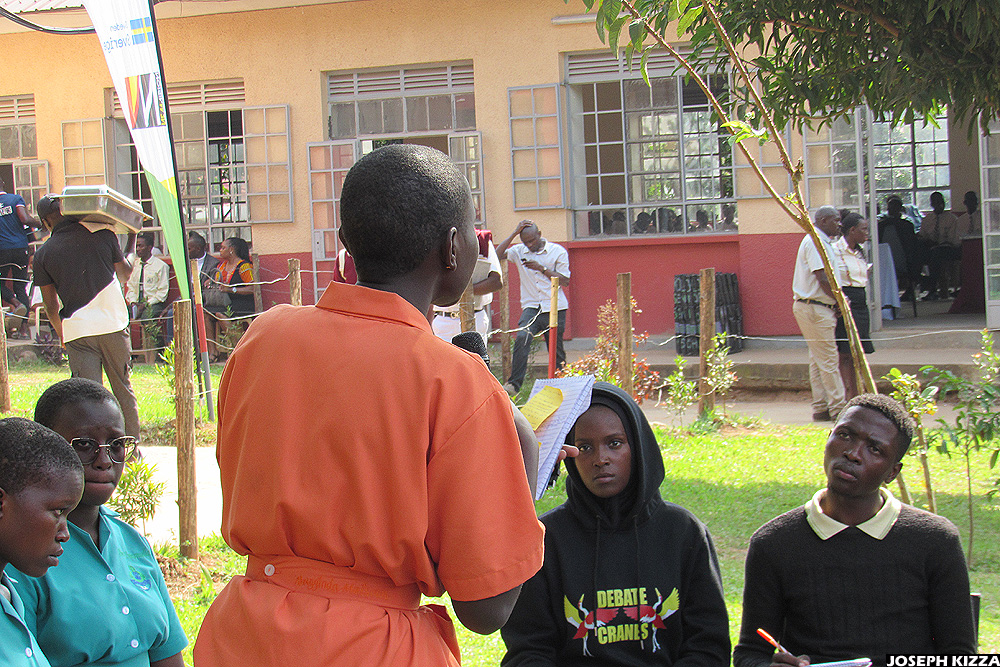
Bottle fences and trash cans
Kahsai-Rudebeck also spoke of the increasing interest in partipation from schools as well as the "astonishing" level of competition in regional and national debating.
This year's edition has been themed around innovations that work in addressing environment and climate-related challenges.
In some schools, such as Kololo SSS in Kampala and Mbale Secondary School in Mbale city, ingeniuous students have put to good use discarded plastic bottles by making trash cans out of them — as seen in the picture below — as well as making bottle fences.
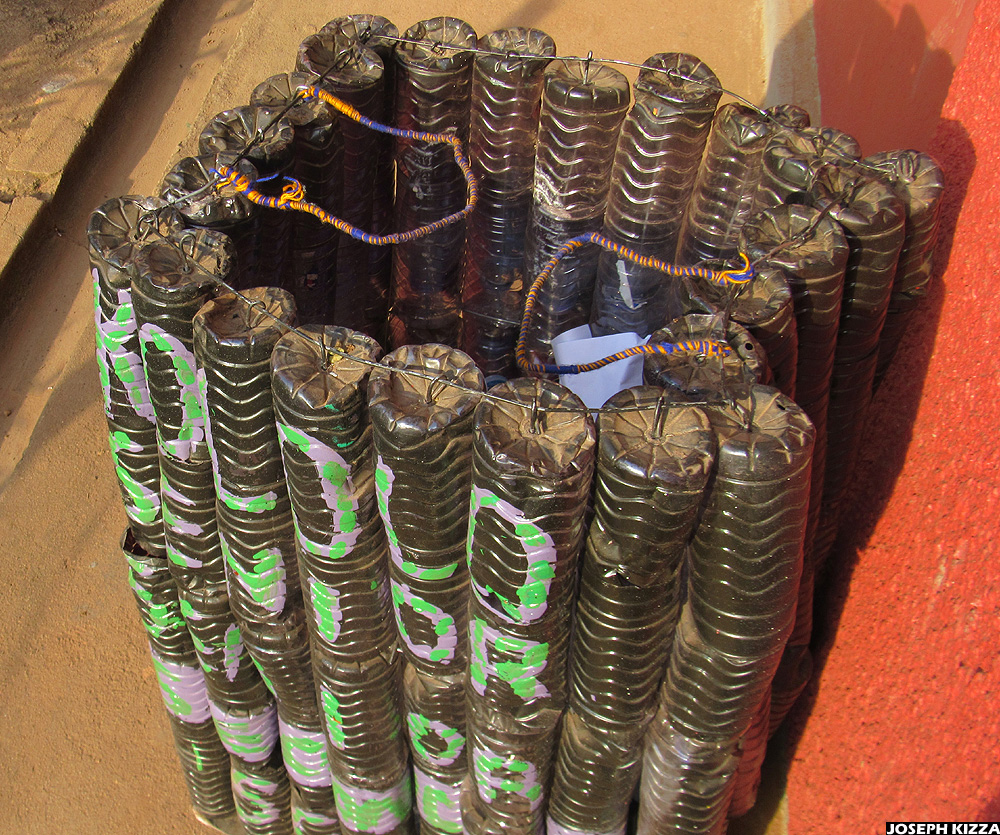
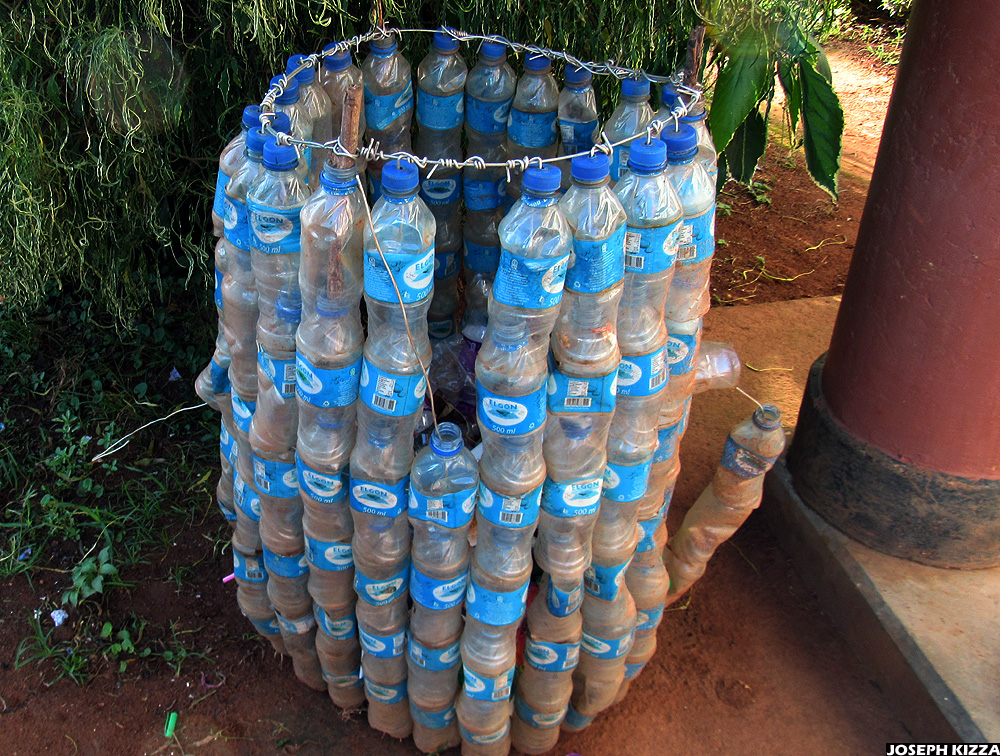
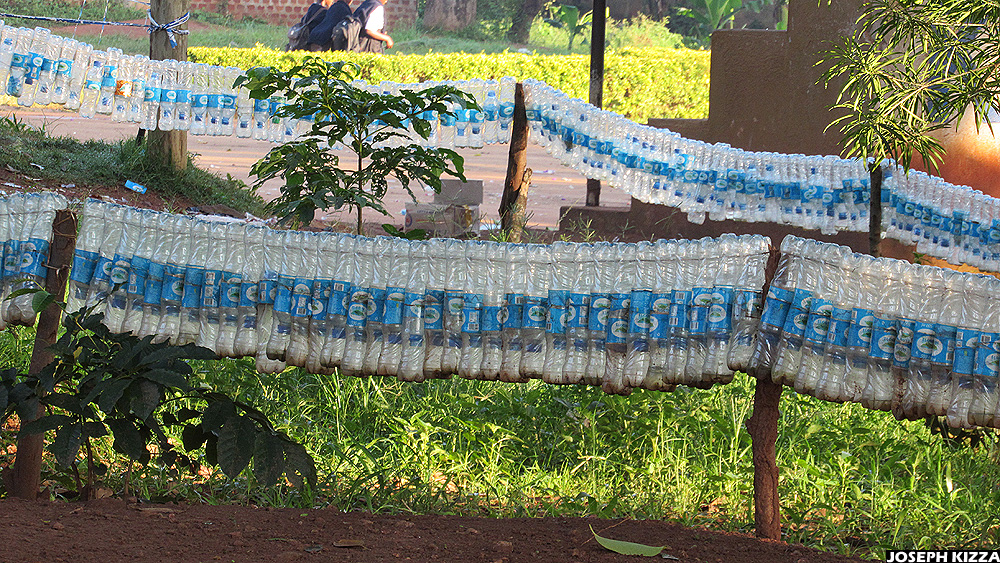
Plastic pollution is not only a local problem, but a global one too.
According to the UN's environment programme (UNEP), every day, the equivalent of 2,000 garbage trucks full of plastic are dumped into the world's oceans, rivers, and lakes.
And every year, 19-23 million tonnes of plastic waste leaks into aquatic ecosystems, polluting lakes, rivers and seas.
UNEP says plastic pollution can alter habitats and natural processes, reducing ecosystems’ ability to adapt to climate change, directly affecting millions of people’s livelihoods, food production capabilities and social well-being.
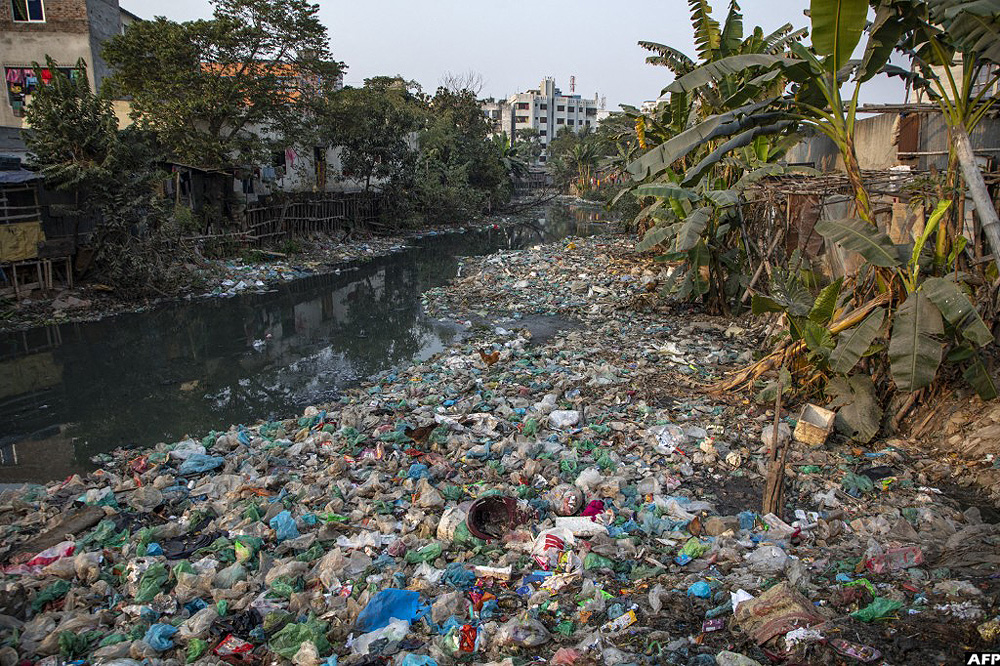
A canal is choked with plastic waste in Dhaka, Bangladesh, on February 5, 2024
'Efforts can create impact'
Meanwhile, the Swedish Embassy's Kahsai-Rudebeck said it has been "overwhelmingly encouraging" to see the Green Schools Initiative's innovative approach and actions aimed at addressing such challenges as plastics pollution, energy access and efficiency, access to water, creating green spaces in schools as well as community outreaches.
"So far, this initiative has highlighted the enormous potential that Ugandan learners and the school community has in addressing climate change and sustainable environmental management in Uganda."
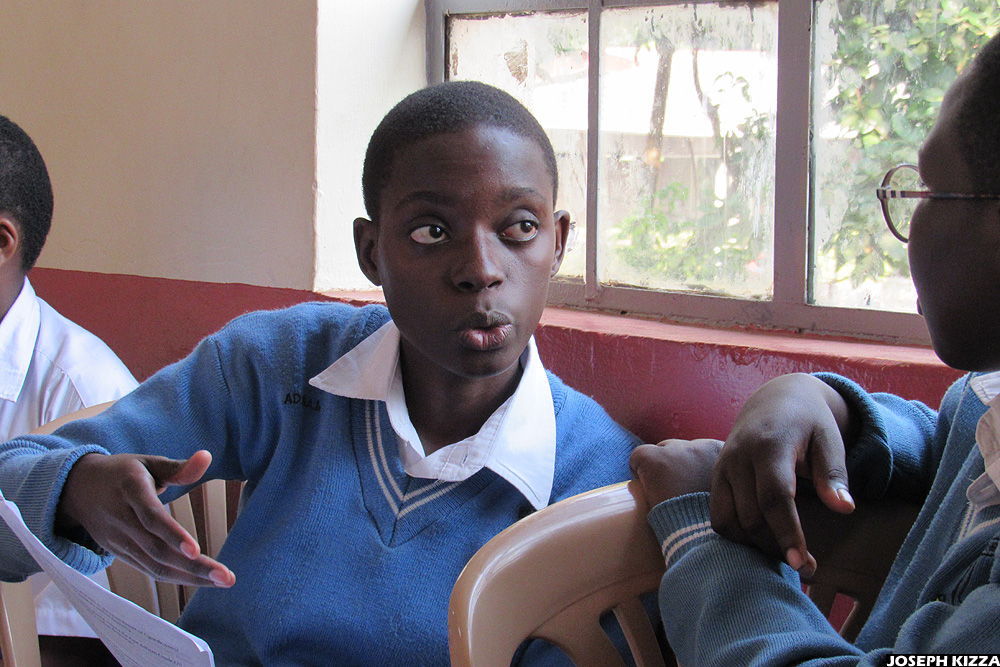
"Students show that our individual and collective actions can create an impact," said Kahsai-Rudebeck.
"[To the debaters] As future leaders, this initiative gives you the opportunity to access and share information that will help you in making lifestyle decisions as well as making and implementing important environment and climate policies.
"And most importantly, investing in future green actions."
WATCH 'Schools' interest is increasing'
'No losers'
John Eremu is the Green Schools Initiative project manager and the New Vision Editor.
Throughout the regional qualifiers, he repeatedly emphasized that whatever the debate results, every participating school was already a winner for being a part of a noble cause.
"Although we can only select three top teams for the nationals, you all are winners."
It is this same winning spirit — as well as learning from mistakes — that Stella Amumpaire (pictured below, 2nd from left), a Senior Four student of Kako SSS, said inspired her school to return this year and become Central region champions.
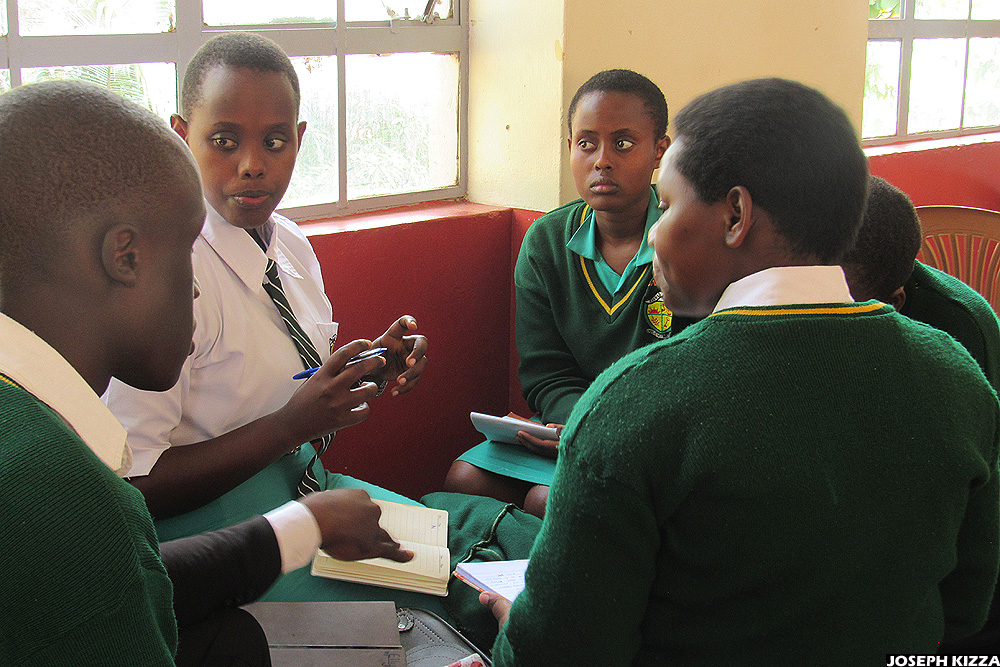
"It has been God that has enabled us to reach here. We believe that practice makes something better," she said.
"In the first edition [last year], we felt intimidated by the big schools but later, we got to figure out that it's our content that will enable us to make it.
"Winning and losing is part of life and we can learn from mistakes."
💬 'We get answers from nature'
Martha Masibo (pictured below), is a teacher and the debate club patroness of Busoga College Mwiri, who finished third in the Busoga region debate and qualified to the national championship.
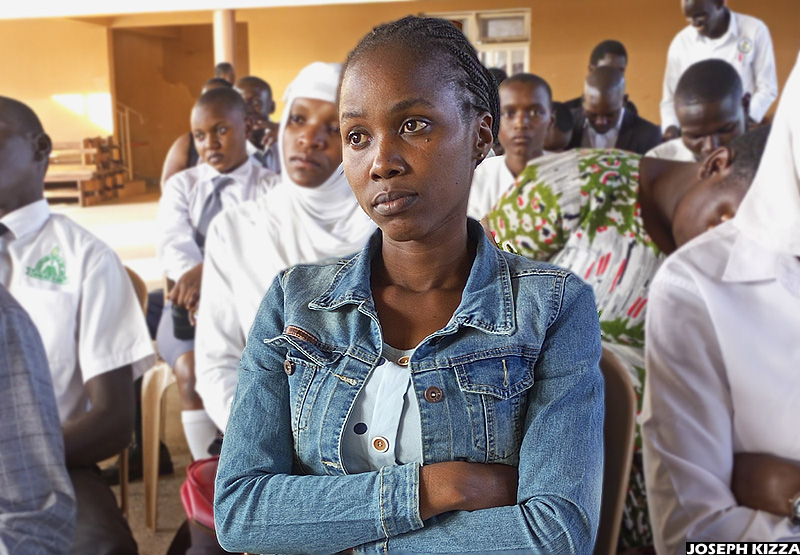
This is what Masibo said after successfully leading her school to the nationals:
❝We prepared well for the regional competition. We always practise [debating]. Given the fact that we love our environment, we as Busoga College Mwiri give it due attention.
We have been preparing for the debate. Whenever we look at nature, we get the answers.
Around our school, we have added things like nursery beds and engaged in activities such as tree planting. After such activities, we usually engage in some debate on the environment.
Through the debates, the students develop more love for environmental conservation.
So when my team came for this regional competition, they were doing what they love. I was confident they would qualify.
The boys noted the guidance from the judges and will use that to improve their performance at the upcoming August national championship.
I believe we are going to be the national champion.
📸 Below, Mwiri debaters taking part in the Busoga regional debate:
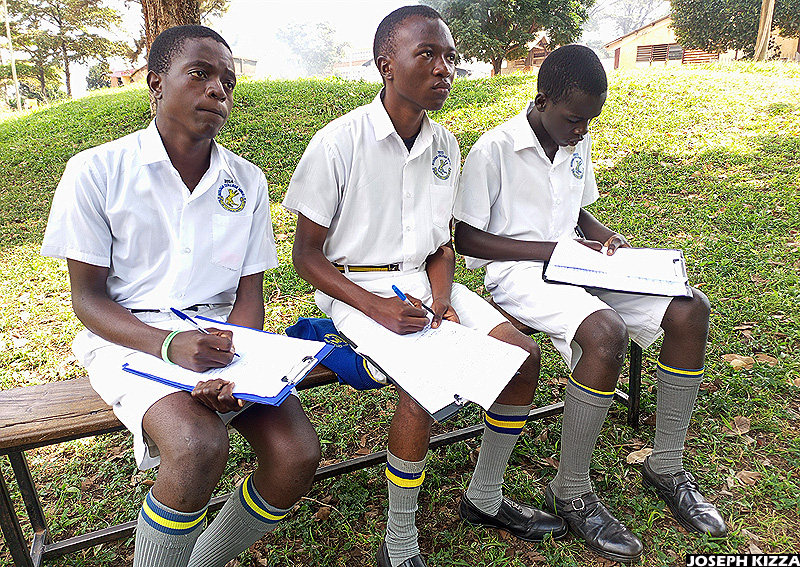
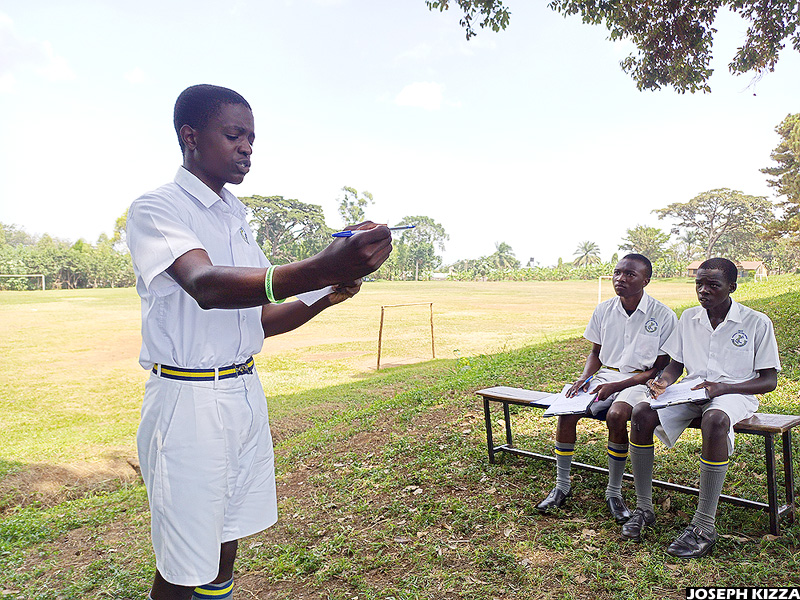
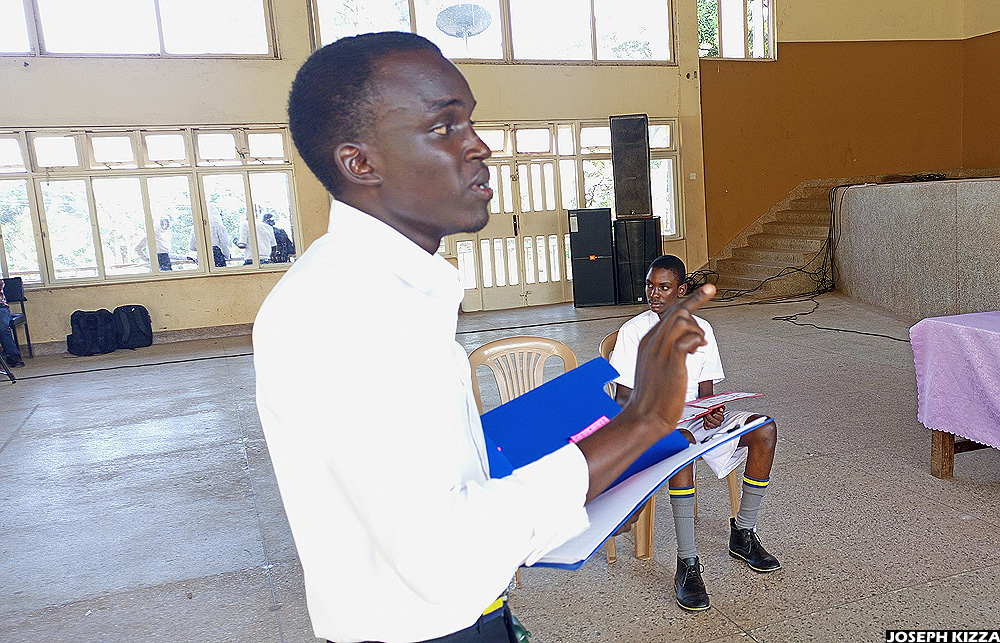
____________________________
Qualified ✔
With the regional competition now done, here is a roundup of the 30 schools that have progressed to the national championship as well as the best individual debaters in the ten regions covered:
KARAMOJA
📍 Host: Moroto High School

Top three:
▪️ Lolachat Seed Secondary School (champion)
▪️ Abim Secondary School
▪️ Napak Secondary School
Best female debater: Patience Namujju Kakayi (Lolachat SSS)
Best male debater: Evaristo Ogwang (Abim SS)
WEST NILE
📍 Host: Mvara Secondary School

Top three:
▪️ Arua Public Secondary School (champion)
▪️ Mvara Secondary School
▪️ Bishop Angelo Talantino Ediofe
Best female debater: Fortunate Habibu Hidaya
Best male debater: Rout Banang Char
TESO
📍 Host: Teso College Aloet

Top three:
▪️ Soroti Secondary School (champion)
▪️ Teso College Aloet
▪️ St Elizabeth Girls Secondary
Best female debater: Doreen Anuo (Soroti SS)
Best male debater: Collins Engoru (Soroti SS)
NORTHERN
📍 Host: Lira Town College

Top three:
▪️ Comboni College (champion)
▪️ Lango College
▪️ Y.Y Okot Memorial Secondary School
Best female debater: Among Genevieve (Y.Y Okot Memorial SS)
Best male debater: Nathaniel Odong (Lango College)
BUGISU/BUKEDI
📍 Host: Mbale Secondary School

Top three:
▪️ Nabumali High School (champion)
▪️ Tororo Girls' School
▪️ Sebei College Tegeres
Best female debater: Philomina Akiteng (Tororo GS)
Best male debater: Jabeth Chemutai (Sebei College)
BUSOGA
📍 Host: Jinja College

Top three:
▪️ Holy Cross Lake View SS (champion)
▪️ Iganga Secondary School
▪️ Busoga College Mwiri
Best female debater: Mercy Gukunda (Iganga Secondary School)
Best male debater: Mesach Cherop (Busoga College Mwiri)
MIDWESTERN
📍 Host: Kyebambe Girls' Secondary School

Top three:
▪️ Nyakasura School (champion)
▪️ St Leo's College Kyegobe
▪️ Kabalega Secondary School
Best female debater: Harmony Gift Kemigisa
Best male debater: Allan Ajunaa
WESTERN
📍 Host: Kibubura Girls' Secondary School

Top three:
▪️ Ntare School (champion)
▪️ Maryhill High School
▪️ Kigezi High School
Best female debater: Sheenah Ainembabazi
Best male debater: Arnold Musiime
CENTRAL
📍 Host: Kololo Senior Secondary School

Top three:
▪️ Kako Senior Secondary School (champion)
▪️ Seroma Christian High School
▪️ Seeta High School
Best female debater: Elizabeth Sasha Okuku
Best male debater: Jessy Mboizi
KAMPALA METROPOLITAN
📍 Host: Kololo Senior Secondary School

Top three:
▪️ Mengo Senior School (champion)
▪️ Nabisunsa Girls Secondary School
▪️ Kitante Hill School
Best female debater: Hermon Asmerom (Mengo SS)
Best male debater: Arnold Asiimwe (Mengo SS)